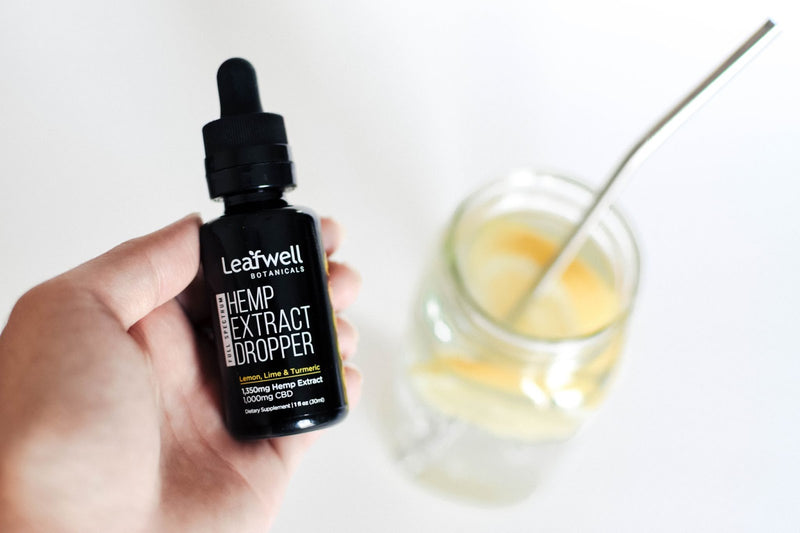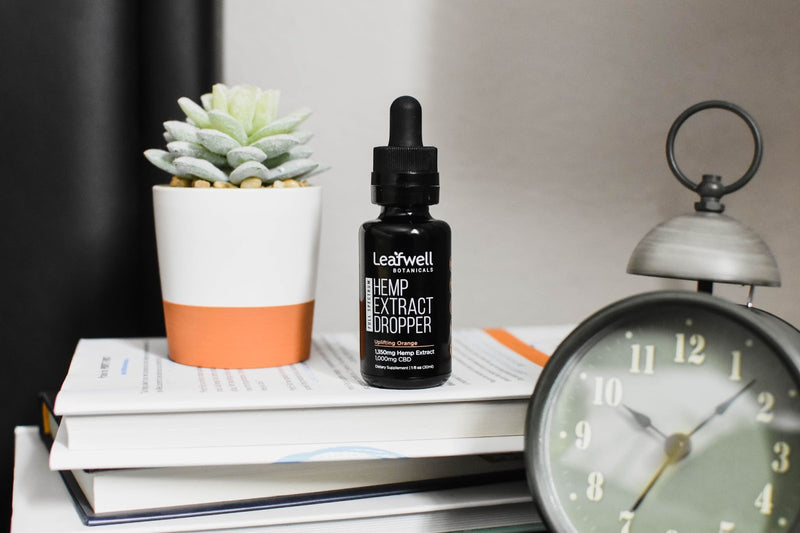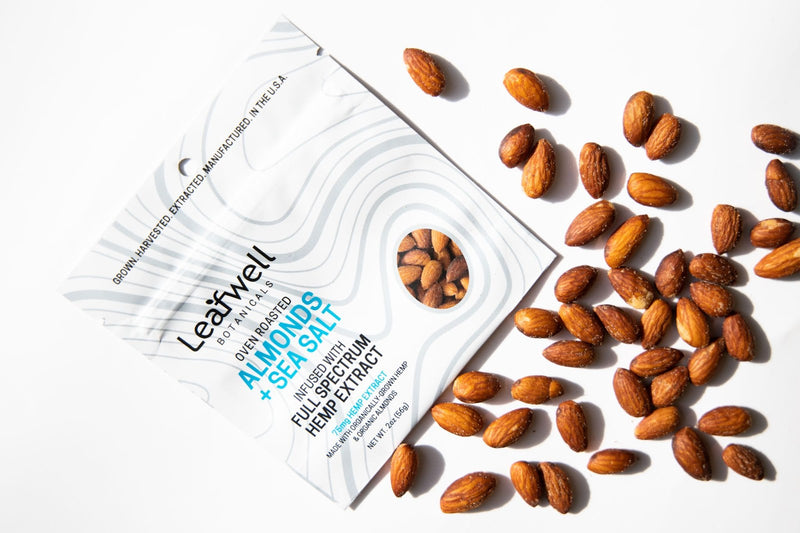Organic Almond Butter: Benefits and Comparison

For many years, peanut butter was the lone nut butter on supermarket shelves (and it still makes up a majority of nut butter sales). It tastes amazing, is very nutritious, and best of all you get a lot of bang for your buck. How can anything possibly compete with that?
Well, nowadays, every nut or even seed that you can imagine has its own corresponding nut/seed butter, with nutrition details comparable to that of peanut butter.
One of those nut butters is almond butter, and its popularity keeps growing as more and more people learn about its many benefits. Make it organic, and it’s value proposition only increases!
So, is organic almond butter really as good as they say? How does it compare to other nut butters, such as peanut butter? And finally, why should you eat nut butters in the first place? For all this and more, read on!
All The Reasons You Should Eat Nut Butters
Before we get into what makes organic almond butter stand out, let’s look first at the many benefits that all nut butters share.
Nut butters help you feel fuller for longer.
While nut butters are calorie dense, nut butters tend to have high levels of fiber. Fiber works in your body by slowing down digestion and providing you with a sense of fullness so long as you don’t eat it all before that sense of fullness kicks in!
When you feel full, you are less likely to experience unhealthy cravings and more likely to eat again only when your body truly needs sustenance.
Nut butters offer you sustained energy.
There are two types of carbohydrates you can choose to eat: simple and complex.
Simple carbohydrates are often an indicator of a lot of sugar, and they are associated with drastic highs and lows in energy levels (most likely relating to blood sugar spikes and dips).
The carbohydrates found in nut butters, however, are complex carbohydrates, meaning your body will digest them slower and they can sustain you for a longer period of time and that’s in addition to all the amazing proteins, healthy fats, and other vitamins & minerals. Because of this, nut butter is a wonderful afternoon snack to help you finish the rest of your work/school day and hold you over until dinner time.
A note: some nut butters may contain added sugars, so look for nut butters that contain zero added sugars (or sugar alcohols). Nut butters that claim to be “reduced-fat” are not preferable and oftentimes contain more sugar than full-fat nut butters.
Nut butters may support your overall health when consumed regularly in moderation.
In other words, consistently eating nut butters (in moderation) reduces your risk for various health conditions.
For example, nut butters contain a lot of healthy monounsaturated and polyunsaturated fats, which help lower risk for cardiovascular issues. Additionally, fiber-rich foods like nut butters both may help manage diabetes and can help reduce your chance of developing type 2 diabetes. Finally, the fiber and fat within nut butters may help contribute to lower cholesterol levels.
Nut butters are full of nutrients that your body needs.
These nutrients include protein, fiber, unsaturated fats, and various essential vitamins and minerals that are more specific to the particular nut butter (almond, peanut, etc.) that you are eating.
Nut butters taste really good.
Isn’t eating supposed to be enjoyable after all? At Leafwell Botanicals, we believe that delicious functional foods that deliver maximum benefits are the way of the future.
What Makes Almond Butter Special?
The above benefits are true of any nut butter, be it almond butter or pistachio butter. But why is almond butter getting so much attention? There are two main reasons:
- Almond butter contains more unsaturated fats than any other nut butter. For example, a two tablespoon serving of almond butter has 17.8 grams worth of fat, most of which are unsaturated. Unsaturated fats are anti-inflammatory and they also regulate cholesterol levels, therefore supporting heart health.
- Almond butter is an incredible source of vitamin E. Vitamin E is a strong antioxidant, which means it helps your body fight free radicals, supports overall cardiovascular health, and several other health benefits.
Clearly, almond butter is especially beneficial for your heart, in addition to all the general points listed above on nut butters. Once you make almond butter organic, the list of benefits just keeps getting better.
The Difference Between Organic and Non-Organic Almond Butter
There is actually a massive difference between organic and non-organic almond butter, so while organic almond butter may be more expensive, it may very well be worth the extra money (we know almond butters are pricey).
See, the almonds that go into non-organic almond butter are more likely to be exposed to pesticides and other toxins during both the growing period and post harvest processing. While nuts don’t have as much surface area and therefore will be exposed to and transfer less pesticides (than say, a large leafy product like lettuce or spinach), it is still some exposure which, if it can be avoided, is always better.
Organic almonds, on the other hand, are much less likely to be exposed to any of the same pesticides, and are GMO-free. Though organic products are still allowed to have pesticides (safer ones that are organically derived), we source exclusively from farmers who do not use pesticides. So, when you consume organic almond butter, or any other organic product, you can trust that you will be consuming cleaner products than non-organic.
When you have the opportunity and if it’s in the budget, always go organic!
How Do Other Nut Butters Compare?
Almond butter is an excellent nut butter, but that does not mean that other nut butters are not good for you as well. In fact, all of the nut butters listed below are healthy, tasty, and nutritious, so the choice on which is best really comes down to your budget, potential allergens, particular needs and preferences!
Peanut Butter
Peanut butter is the classic nut butter, and for good reason. It is by far the cheapest option, and therefore the most accessible. In fact, a lot of the other nut butters on this list may or may not be available in your local supermarket, but peanut butter always will be. The best part is that even though it’s the most affordable, it does not sacrifice taste or nutrients!
Additionally, peanut butter has about double the protein of almond butter per tablsepoon. This is pretty impressive, considering a tablespoon of almond butter contains almost 4 grams of protein. And to top it all off, peanut butter is a fantastic source of healthy fats, fiber, potassium, iron, magnesium, zinc, and vitamin B, among others.
CBD-Infused Nut Butter
CBD is a natural, plant-based extract that goes surprisingly well with nut butters, including good ol’ peanut butter. From the nut butter you can receive all of the many benefits detailed at the beginning of this article. CBD can help you recover from everyday activities, support your mental wellness, and promote holistic health. Together, the pair is unstoppable.
Try our Organic Creamy CBD Peanut Butter for the best results!

Walnut Butter
Walnut butter rivals almond butter in terms of heart-healthy benefits. This is because walnut butter contains impressive amounts of omega-3 fatty acids. Omega-3s are antioxidant-rich, and work alongside unsaturated fats and vitamin E to fight free radicals. Omega-3s have also been shown to support both cardiovascular and overall health. Finally, omega-3 fatty acids simultaneously lower “bad” (LDL) cholesterol and raise “good” (HDL) cholesterol. Basically, walnut butter can be your heart’s best friend.
Hazelnut Butter
Hazelnut butter is a tricky one, since it has become synonymous with Nutella. Unfortunately, no matter how good it tastes, the latter is ripe with sugar and chocolate, and you should consume it sparingly. Natural hazelnut butter is similar to almond butter though, in that it contains high levels of monounsaturated (healthy) fats and vitamin E. Just be careful when shopping for hazelnut butter--check the nutrition label closely for any sugary additives because oftentimes it is made to be unhealthy by all the additional ingredients.
Sunflower Seed Butter
Are you one of the unlucky bunch that is allergic to peanuts and/or tree nuts? No worries! This seed butter is actually made from seeds--sunflower seeds.
Just like almond butter, sunflower seed butter is full of vitamin E. Even better, sunflower seed butter is absolutely bursting with an electrolyte called magnesium, which supports better energy and overall bone health.
Tahini
Tahini is a spread made from sesame seeds, technically making it a seed butter. On the one hand, tahini products are higher in sodium because they typically require more salt for taste. But on the other hand, tahini is a great source of copper, which promotes red blood cell production, and manganese, which supports your metabolism, among other tasks.
Pistachio Butter
Beating out almond butter’s protein by an extra gram per serving, pistachio butter is also rich in fat and fiber, though it does contain more carbs than some of the other nut butters. On the flip side, pistachio butter has one of the lowest calorie counts of any nut butter. Plus, if you are looking to up your B vitamins intake, pistachio butter is the way to go.
In Conclusion
Given that nut butters contain all the essential nutrients they do, including many vitamins & minerals, unsaturated fat, protein, and fiber, they should be a regular part of any healthy, well-balanced diet. Nut butters can be your trusted guilt-free snack to increase your energy levels, and improve your overall health.
Almond butter stands out because it has the best ratio of unsaturated fats to saturated fats of all of the nut butters, and is also a great source of vitamin E. Organic almond butter is best, since organic products are less likely to contain potentially harmful contaminants.
On the other hand, all nut butters are incredibly beneficial for your health, so it is difficult to rank them. Notably, CBD-infused nut butter (and supplement infused in general) combines the nutritional advantages of nut butters with the holistic health benefits of CBD and other wonderful supplements.
The best nut butters, such as our Creamy CBD Peanut Butter, use only organic ingredients, contain zero unwanted ingredients, and promote better overall health, to help you thrive at life!
Sources
The 9 Best Healthy Nut Butters, According To Nutritionists (womenshealthmag.com)
Nut Butters: Which One Is Healthiest? | Cedars-Sinai (cedars-sinai.org)
Almond Butter vs. Peanut Butter: What’s Healthiest? (healthline.com)







